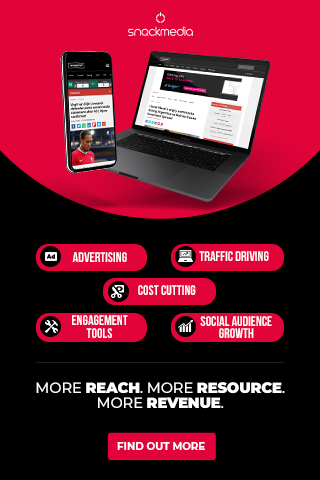Ball Street’s summer YouTuber cup shows the value of sponsorship over advertising
You may know Ball Street as a football YouTube channel, but their place in the fan-led football media is a leading one.
Over the last few years, fan content has become lucrative business, but that’s only because of the proliferation of passionate, creative people making entertaining and often insightful content without broadcast rights or big names at their disposal. The views of fans have always been important in sport – it’s a cliche, but without any fans, there’d be no money for professional sport – but as the Premier League boomed and TV rights deals became bloated, fans are often the ones squeezed the most. It’s unsurprising that social media channels which give them the opportunity to have their say has given rise to the likes of Ball Street, Copa90 and others whose content has fans’ entertainment and engagement, rather than any other agenda, in mind.
This week, Ball Street have announced the launch of a YouTube football cup, a tournament between members of the burgeoning ranks of influencer football teams, and positioned in a summer void of top level football, even if that’s not much consolation to fans facing a summer of pretending to be interested in other sports. The start of the league, though, coincides with the launch of the headline partner of the competition, FanLeague, a football predictions app.
The two sectors go hand in hand. For one thing, the rise in fan-led media and daily fantasy sports apps have taken a similar trajectory: rather than bet against the house, as you would do with a normal betting company, we’ve seen a lot of ‘bet against your mates’ attempts at conquering the market. Both understand that a more personable approach is desirable to many sports fans, all the more so given the social nature of sport.
But in another way, you can see how they come together in a much more interesting way: sponsorship.
Advertising has been the beating heart of football’s rise in power and the explosion of online football publishers. When Sky TV bought the rights to the Premier League for its debut season in 1992, they promised a ‘whole new ball game’. They were right in as much as commercial, pay TV could afford to capitalise on the popularity of the sport, and since then TV rights deals have gone up and up as both have made money out of the Premier League craze. Online media, too, has worked on a similar idea that more eyes on content means more money from advertisers.
But two decades later, online advertising has become ubiquitous and the general public seem sick of it. Advertisers as well as publishers have been forced into a rethink.
And that’s why a sponsorship deal between the likes of Ball Street and FanLeague seems so appealing. In a press release, Ball Street co-founder and CEO Matt Wilson said, “this, we feel, is a refreshing alternative to the world where millions of ad dollars are wasted on advertising people don’t want.” But you have to pay the bills somehow.
Over the course of the last football season, website Joe.co.uk broke new ground by live-streaming a Friday evening football chat show, hosted by big-name YouTube influencers and included even bigger-name former footballers and journalists. In essence, it was the sort of chat show we see on TV all the time, but without rights to any live sport – just creative and entertaining chat interspersed with social media comments, questions and video interludes.
The idea, presumably, was to bring all the best things about internet sports coverage to one show, an extension of the online conversation. But it didn’t include the worst thing about the internet: advertising. Instead the Joe focused on securing sponsorship with betting company 888 Sport in order to make the stream financially viable.
For fan-led publishers, who usually rely on advertising revenues to make money, this sort of sponsorship for events or special content is surely the way forward – not only doesn’t it foist advertising on the viewers who quite clearly don’t want it, but there is also a possibility to forge genuinely useful partnerships.
Ball Street’s FanLeague Cup certainly won’t fill the footballing vacuum this summer, and for all the social media influence of YouTube football teams and the buzz around them, it remains a niche idea. But giving content creators the chance to be creative by partnering with a sponsor rather than relying on more traditional advertising sales looks to be a much more viable idea.
About author
You might also like
SPORTEL 2021: Day One Recap
This year’s prestigious SPORTEL convention kicked off in sunny Monaco today, welcoming a host of familiar faces as well as plenty of new ones. Doors opened at 8:30am with businesses
Six Founding Riders Set To Bring The Vision Of The UCI Track Champions League To Life
Olympic Champions, UCI World Champions and World Record holders join the new track cycling competition debuting in November 2021 The UCI Track Champions League is delighted to announce that six
Sports related spending to soar this summer as pre-pandemic life resumes
New insights from eBay Ads UK reveal the potential for brands to engage with an excited but nervous nation as sports events get back on track As pubs and indoor








